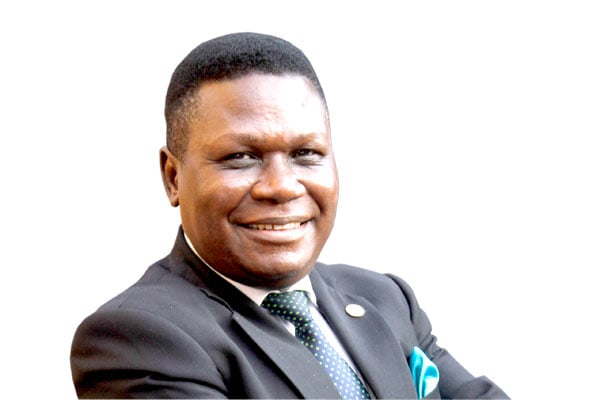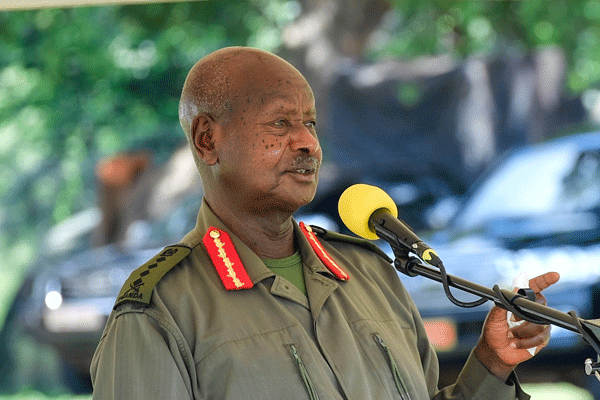Prime
Disarmament alone will not save Karamoja

Author: Mr Nobert Mao. PHOTO/FILE
What you need to know:
- Clueless policymakers are like carpenters planning a piece of wood against the grain.
Each time I’m asked whether there’s hope for Karamoja, my answer is simple: The Jews were once a tribe of desert nomads. And so were their Arab neighbours and relatives. That may sound like an oversimplification but it will become less so once you understand how societies evolve.
But let me not dive into my conclusion yet. Recently, what began as a light-hearted conversation with Napak Woman MP Faith Nakut about the potential of local governments to spearhead transformation morphed into an invitation for me to give a keynote address to a training seminar for local government leaders from across Karamoja. And so I hightailed it to Napak. My institutional host was the Karamoja Development Forum.
Usually I want to see sights around a place where I’m due to make a speech and in any case I had arrived well in time. My speech was scheduled for after lunch. I noted that from Kampala to Moroto the road is tarmac. No dust. This is a vital investment that links the centre of Karamoja to the rest of the country. I also saw a massive complex of warehouse like buildings said to be a youth skilling centre full of equipment. I was told it was not yet open. The place looks lifeless.
My thoughts went to the hundreds of street children from Karamoja who stand along busy Kampala streets begging motorists for alms. These children often have become mothers at a tender age. In districts neighbouring Karamoja like Agago one is bound to see small groups of young women, hoes on their shoulders, moving from homestead to homestead looking for work in exchange for food! The skilling centre that looks abandoned should be the destination for the youth of Karamoja who need skills. I know the Karimojong not to be lazy. I also admire their immense discipline.
So why do policy makers say it is very hard to transform Karamoja? True, efforts at sedentarisation have been slow to yield fruit. The attempts by successive central authorities to impose a sedentary lifestyle on Karamoja have achieved little because it seems the policymakers and their equally clueless implementers are like carpenters planning a piece of wood against the grain. Societies, like timber, have a definite contour or grain. A good carpenter starts by studying the grain of the wood in order to avoid going against the grain. One has to understand a culture before attempting to change it.
Our topics of discussion were about service delivery and how to equip local leaders with definite skills that will enable them execute their responsibilities with greater impact. I was impressed by the knowledge of the participants. Their command of the issues and even the English language was commendable. But the issue of how government is dealing with the violence of the warriors who kill and maim in order to steal livestock kept popping up.
Many participants felt that Karamoja has been ostracised and stigmatised because of the lawlessness and violence of a few of their kith and kin. It looks like what was once done in Acholiland is being done in Karamoja, namely, heaping the collective guilt on an entire people for the crimes of the LRA! The prejudice against Karamoja is a major obstacle to any solution to the problem of cattle rustling.
“Make Karamoja count,” one participant cried out in the middle of my speech.
“I’m not seeing any disarmament. I’m only seeing torture,” another participant said. “Let them give us hospitals so that at least we can treat the people they are torturing.”
“The army has failed to understand how local leaders work. We’re not protected as leaders,” another participant added. After the session it was unanimous that the local leaders feel that they are not being heard. They demanded that for the first time President Museveni should meet local leaders at a forum that will not be dominated by their national leaders who they feel have many opportunities to meet the President.
The problem of Karamoja, like most other deprived communities, is not just poverty, inequality or cattle rustling. The problem is powerlessness! The Karimojong feel that they have no power over their destiny. The participants who attended the Napak training denounced decentralisation as hollow.
“The decentralisation of Bidandi Ssali is different from the decentralisation of Raphael Magyezi,” a participant said to wild applause. No wonder the assembled leaders said they need a regional government with more powers. I agree.




